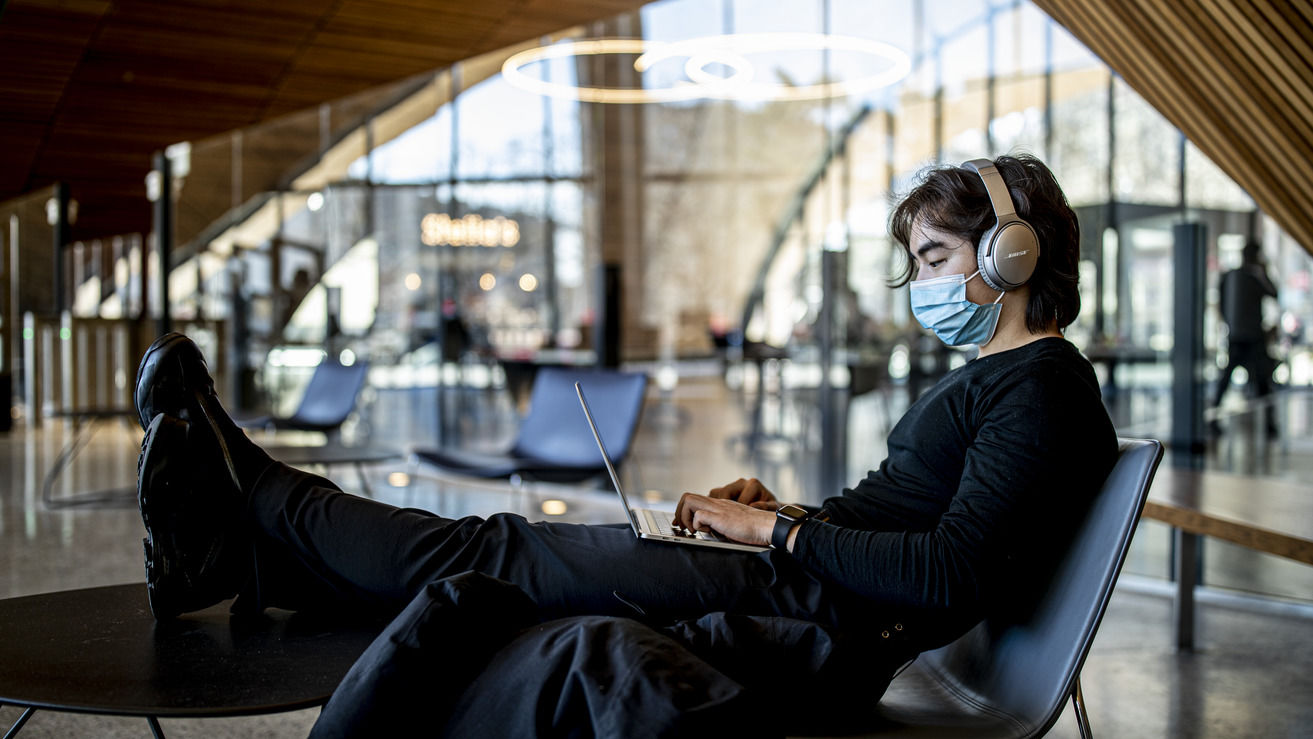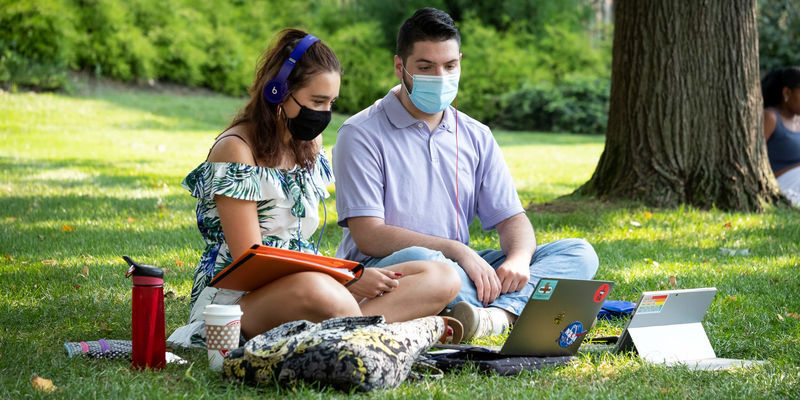‘Pandemic brain’ is making it harder for us to focus
Jeni Stolow, a professor at the College of Public Health, discusses how the coronavirus pandemic has changed the way we think.

Many of us have been under almost constant pressure since the coronavirus pandemic began. If you’ve found yourself struggling to concentrate on a task, or having difficulty remembering a specific word or where you left your keys, you might be experiencing the mental fog known as “pandemic brain”—and you’re not alone.
“It’s this cognitive impairment that the whole world has been going through because it’s triggered by things like stress,” said Jeni Stolow, a social and behavioral scientist and assistant professor of instruction at the College of Public Health. “Some of us had major stressful events happen, but we also have these micro-stressors happening continuously.”
The pandemic disrupted our daily lives and subjected us to months of anxiety and uncertainty. We’ve all made changes to cope and so have our bodies. “[Pandemic brain] is actually your brain adapting to your new situation the best way it can,” Stolow said. “Unfortunately, because we went from being really dynamic and moving around and interacting with people to complete shutdown, it manifests as feeling apathetic, tired or depressed.”
Common symptoms also include forgetfulness and a lack of focus. “That awkwardness you feel, but also a sense of being unfamiliar with reality,” Stolow said. “I think people might be feeling a little silly right now. They’re thinking, ‘I forgot how to pump gas? I forgot how to interact with strangers on the metro?’”
As the world around us changed our bodies delegated and redistributed energy in line with our cognitive needs. Take communication. When we began to spend more time interacting virtually, our brains started to devote more energy to that and less to in-person conversations. Now, speaking to someone face to face can be hard because we’re out of practice.
“Maintaining focus, whether it’s memory, interpersonal connection or just completing tasks, is kind of challenging for most of the planet right now,” Stolow said.
Because everything changed so quickly, we might expect our brains to snap back to their pre-pandemic state just as easily. But it isn’t that simple. “We’re all relearning how to do this. I think the first step is to be kind to yourself and try not to get frustrated,” Stolow said. “Our bodies are absolutely incredible and capable of [adapting], but you have to be patient.”
There are a few things we can do to help the process along, like cutting back on screen time. “You need to be away from your screens and to practice engaging as you did before, whether that’s picking up a phone and talking to someone [without a video call],” Stolow said, “or having more face to face interaction safely.”
Even just getting yourself moving can help. ”Everyone knows that exercise is your brain’s best friend, so the more exercise you do the more your brain is going to respond,” she said.
Stolow and her colleagues believe the best way to set a new routine is to provide cues to the action you want to take, like putting your cell phone in “do not disturb” mode after a certain time or placing a book on your bedside table as a reminder to read. “It’s just making sure that you’re setting yourself up for success,” she said, “because the next few months are going to be a little weird for everyone. That’s just a reality.”
She also feels we will treasure even the smallest hints of normalcy. “Little tiny moments I think will feel more satisfying because we’ve been taking them for granted,” she said.
But as everything reopens, we shouldn’t lose sight of the more vulnerable members of our communities who might be struggling. “It’s really important to acknowledge people who have fallen between the cracks during the pandemic,” Stolow said, “[like] our older relatives or neighbors or friends. We need to reach out, even to those friends we haven’t spoken to in a long time.”
And although the worst might be behind us, she believes we will be dealing with the pandemic for some time, as demonstrated by the risks posed by the COVID-19 variants. “I understand everyone wants to get back to normal as fast as possible but I can tell you it’s not going to be that smooth,” she said.
Nevertheless, Stolow is optimistic. “From trauma comes resilience and we have all gone through trauma,” she said. “We know we can do that, so it will make any adjustment less scary.”
—Edirin Oputu


